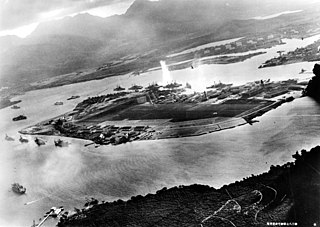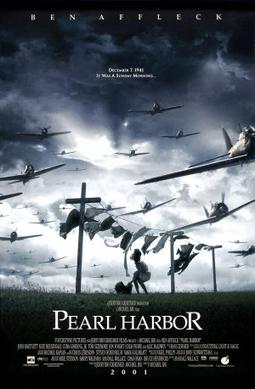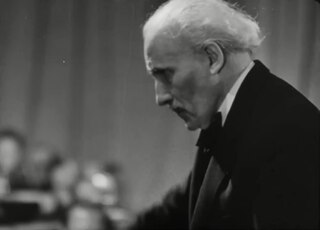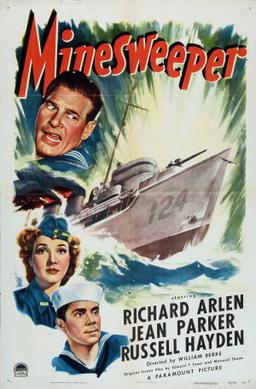Related Research Articles

The attack on Pearl Harbor was a surprise military strike by the Imperial Japanese Navy Air Service on the American naval base at Pearl Harbor in Honolulu, Hawaii, in the United States, just before 8:00 a.m. on Sunday, December 7, 1941. At the time, the United States was a neutral country in World War II. The attack on Hawaii and other U.S. territories led the United States to formally enter World War II on the side of the Allies the day following the attack, on December 8, 1941. The Japanese military leadership referred to the attack as the Hawaii Operation and Operation AI, and as Operation Z during its planning.

Pearl Harbor is a 2001 American romantic war drama film directed by Michael Bay, produced by Bay and Jerry Bruckheimer and written by Randall Wallace. It stars Ben Affleck, Kate Beckinsale, Josh Hartnett, Cuba Gooding Jr., Tom Sizemore, Jon Voight, Colm Feore, and Alec Baldwin. The film features a heavily fictionalized version of the attack on Pearl Harbor by Japanese forces on December 7, 1941, focusing on a love story set amidst the lead up to the attack, its aftermath, and the Doolittle Raid.

USS Kidd (DD-661), a Fletcher-class destroyer, was the first ship of the United States Navy to be named after Rear Admiral Isaac C. Kidd, who died on the bridge of his flagship USS Arizona during the 1941 Japanese attack on Pearl Harbor. Admiral Kidd was the first US flag officer to die during World War II and the first American admiral ever to be killed in action. A National Historic Landmark, she is now a museum ship, berthed on the Mississippi River in Baton Rouge, Louisiana, and is the only surviving US destroyer still in her World War II configuration. She is one of four remaining Fletcher-class destroyers in the world.
The Roberts Commission is one of two presidentially-appointed commissions. One related to the circumstances of the Japanese attack on Pearl Harbor, and another related to the protection of cultural resources during and after World War II. Both were chaired by Supreme Court Justice Owen Josephus Roberts.

Air Force is a 1943 American World War II aviation film directed by Howard Hawks and starring John Garfield, John Ridgely, Gig Young, Arthur Kennedy, and Harry Carey. The film was distributed by Warner Bros. and produced by Hal B. Wallis and Jack L. Warner. It contains incidents of supposed fifth-column activities by Japanese Americans that never happened. Conceived by then - Lieutenant General “Hap” Arnold in the aftermath of the Pearl Harbor attack, it was originally scheduled for release on December 7, 1942, on the first anniversary. It became impossible to meet that deadline, and it premiered in New York City on February 3, 1943 and was released on March 20. The film's storyline revolves around an actual event that occurred on December 7, 1941. An aircrew ferries an unarmed 1940 series Boeing B-17D Flying Fortress heavy bomber, named the Mary-Ann, across the Pacific to the United States Army Air Forces base at Hickam Field. They fly right into the middle of the Japanese air attack on Pearl Harbor and the beginning of America's major involvement in the Second World War. An uncredited William Faulkner wrote the emotional deathbed scene for Ridgely, who played the commander and pilot of the Mary-Ann.

Hymn of the Nations, originally titled Arturo Toscanini: Hymn of the Nations, is a 1944 film directed by Alexander Hammid, which features the Inno delle nazioni, a patriotic work for tenor soloist, chorus, and orchestra, composed by Italian opera composer Giuseppe Verdi in the early-1860s. For this musical work, Verdi utilized the national anthems of several European nations.

December 7th is a 1943 propaganda documentary film produced by the US Navy and directed by Gregg Toland and John Ford, about the December 7, 1941 attack on Pearl Harbor, the event which sparked the Pacific War and American involvement in World War II. Toland was also the film's cinematographer and co-writer. The original version of this film, with a running time of 82 minutes, was not released but was retained by the National Archives. An edited version of 32 minutes length, which removed a long introductory segment and a shorter epilogue, was given limited release to specific audiences but won the Academy Award for Best Documentary in 1944. This is the only film Toland ever worked on for which he received a director credit.

Ring of Steel is a 1942 short documentary film directed by Garson Kanin and narrated by Spencer Tracy. "Dedicated to the American Soldier", the film was released on April 2, 1942, and distributed free to all U.S. theaters. The film was produced by Warner Bros. and the United States Office for Emergency Management.

Gracias Amigos was a 1944 propaganda short produced by the Office of the Coordinator of Inter-American Affairs to educate the American public about the contributions of Latin America during World War II.
The Town is a short propaganda film produced by the Office of War Information in 1943. The documentary, depicting the American Midwestern city of Madison, Indiana was filmed by Josef von Sternberg in 1943 and released in 1945.

Women in Defense is a 1941 short film produced by the Office of Emergency Management shortly before the United States entered the Second World War. It was directed by John Ford.

Wilson Brown, Jr. was a vice admiral of the United States Navy who served in World War I and World War II. Brown turned 60 in April 1942, making him one of the oldest American naval officers to serve in combat during World War II.
Between 1941 and 1945, during World War II, Walt Disney and his company were involved in the production of propaganda films for the U.S. government. The widespread familiarity of Disney's productions benefited the U.S. government in producing pro-American war propaganda in an effort to increase support for the war.

Beyond the Line of Duty is a 1942 American short propaganda film, directed by Lewis Seiler. The documentary film reenacted the life and career of United States Army Air Corps Captain Hewitt T. "Shorty" Wheless.
War Department Report is a 1943 American documentary film directed by Carl Marzani. It was nominated for an Academy Award for Best Documentary Feature.

Pearl Harbor is an American lagoon harbor on the island of Oahu, Hawaii, west of Honolulu. It was often visited by the naval fleet of the United States, before it was acquired from the Hawaiian Kingdom by the U.S. with the signing of the Reciprocity Treaty of 1875. Much of the harbor and surrounding lands are now a United States Navy deep-water naval base. It is also the headquarters of the United States Pacific Fleet. The U.S. government first obtained exclusive use of the inlet and the right to maintain a repair and coaling station for ships here in 1887. The surprise attack on the harbor by the Imperial Japanese Navy on December 7, 1941, led the United States to declare war on the Empire of Japan, marking the United States' entry into World War II.

Minesweeper is a 1943 American black-and-white World War II film, produced by William H. Pine and William C. Thomas, directed by William A. Berke, that stars Richard Arlen, Jean Parker, and Russell Hayden. The film was distributed by Paramount Pictures. A former navy deserter returns to duty after the attack on Pearl Harbor under an assumed name as a sailor aboard a minesweeper.
Food and Magic is a 1943 short documentary film commissioned by the United States Government during World War II. Food and Magic, was produced by the War Activities Committee of The Motion Picture Industry and it deals with food conservation and healthy eating. It stars Jack Carson as a sideshow barker who informs the crowd about proper wartime food consumption, including conservation and rationing.

Reward Unlimited is a short film produced in 1944 by David O. Selznick's Vanguard Films, for the United States Public Health Service, dramatizing the need for volunteer military nurses for the U. S. Cadet Nurse Corps during World War II. Directed by Jacques Tourneur, the 10-minute film stars Dorothy McGuire in one of her first films. The story by Mary C. McCall, Jr., dramatizes the choice that young Peggy Adams makes to become a nurse, her training, and her volunteering for military nursing service. The cast includes Aline MacMahon, James Brown, Spring Byington and Tom Tully.

The attack on Pearl Harbor has received substantial attention in popular culture in multiple media and cultural formats including film, architecture, memorial statues, non-fiction writing, historical writing, and historical fiction. Today, the USS Arizona Memorial on the island of Oahu honors the dead. Visitors to the memorial reach it via boats from the naval base at Pearl Harbor. The memorial was designed by Alfred Preis, and has a sagging center but strong and vigorous ends, expressing "initial defeat and ultimate victory". It commemorates all lives lost on December 7, 1941.
References
- ↑ "Preserved Projects". Academy Film Archive.
- ↑ "Academy War Film Collection". Academy Film Archive.